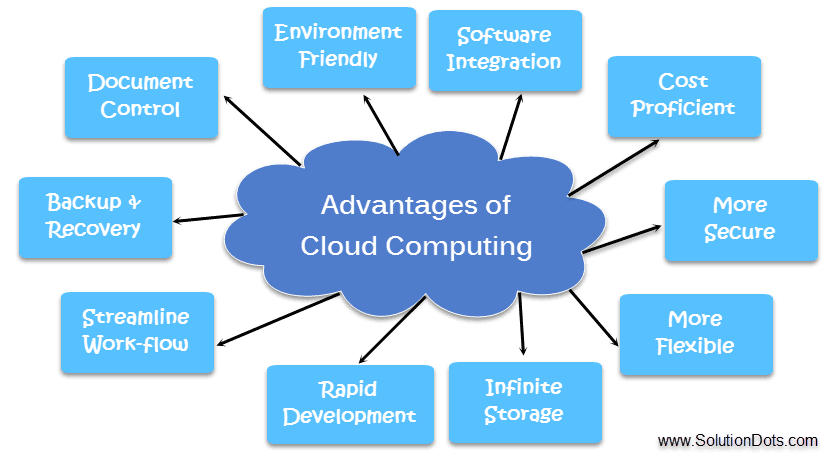Cloud computing advantages

Author
Lê Trần Bá Minh
Publish
10/06/2023
6 mins read

Cloud computing offers numerous advantages to individuals and businesses alike. Here are some key advantages of cloud computing
1.Cost Savings: Cloud computing eliminates the need for upfront investments in hardware, infrastructure, and software licenses. Instead, it operates on a pay-as-you-go model, where users only pay for the resources and services they consume. This reduces capital expenses and allows for better budget management.
2.Scalability and Flexibility: Cloud services provide the ability to scale computing resources up or down based on demand. Whether you need to accommodate sudden spikes in traffic or scale down during quieter periods, cloud computing offers flexibility and agility in resource allocation.
3.High Reliability and Availability: Cloud providers typically offer service level agreements (SLAs) that guarantee high uptime and availability. They have redundant systems and data centers to ensure that applications and data are accessible even in the event of hardware failures or disasters.
4.Global Accessibility: Cloud services can be accessed from anywhere with an internet connection. This allows users to work and collaborate remotely, enabling distributed teams and remote work arrangements. It also facilitates easy access to applications and data across multiple devices.
5.Enhanced Collaboration: Cloud computing enables real-time collaboration and file sharing among teams, regardless of their location. Multiple users can work on shared documents simultaneously, improving productivity and fostering collaboration.
6.Automatic Software Updates: Cloud providers handle software updates and maintenance, ensuring that users have access to the latest features, bug fixes, and security patches. This eliminates the need for users to manually update and maintain software applications.
7.Data Security and Backup: Cloud providers implement robust security measures to protect data, including encryption, access controls, and regular backups. Data stored in the cloud is often more secure than traditional on-premises storage, as cloud providers invest heavily in security infrastructure and expertise.
8.Disaster Recovery and Business Continuity: Cloud computing offers built-in disaster recovery and business continuity capabilities. Data replication and backup across multiple data centers ensure that data can be recovered in the event of a disaster, minimizing downtime and data loss.
9.Environmental Sustainability: Cloud computing can contribute to environmental sustainability. By utilizing shared resources and optimizing server utilization, cloud providers can achieve higher energy efficiency and reduce carbon footprints compared to traditional IT infrastructure.
10.Innovation and Time-to-Market: Cloud computing enables rapid deployment of applications and services, reducing the time-to-market for businesses. Developers can leverage cloud-based platforms and services to quickly build, test, and launch new applications, accelerating innovation and competitive advantage.
SHARE ON